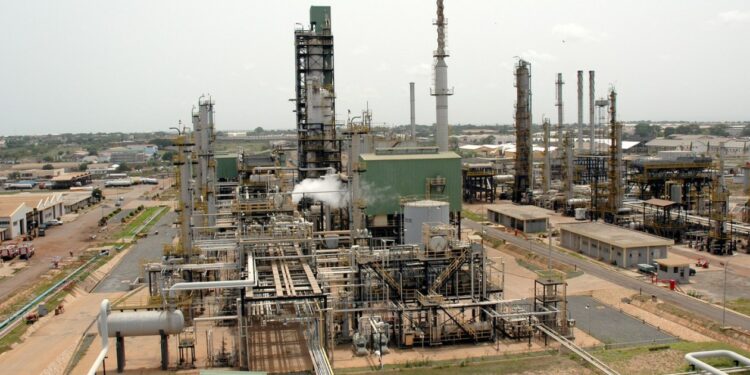TOR’s Debt Hits $517m as Reclassified Grants, Trade Obligations Balloon Liabilities
The Tema Oil Refinery (TOR) has disclosed that its total debt stock has climbed to $517 million as of December 2024, driven largely by unresolved trade obligations and recent reclassifications of financial support from the government.
TOR’s Acting Managing Director, Edmund Kombat, who made the revelation during an interaction with the media after appearing before Parliament’s Energy Committee, attributed the surge in liabilities to a mix of legacy debts, third-party exposures, and accounting adjustments prompted by Ghana’s ongoing programme with the International Monetary Fund (IMF).
According to Mr Kombat, a major portion of the debt emanated from unpaid crude oil supplies over the years as well as unfavourable trading conditions, including transactions that were not hedged, which exposed TOR to significant market risks.
“There were trade debts, sometimes involving third parties. And then there were also legacy debts where crude was supplied but not paid for,” he explained.
“In the past, the Ministry of Finance had extended funds to TOR, some of which were initially treated as grants. However, under the current IMF programme, those grants have been reclassified as debt, which has contributed to the ballooning of our liabilities,” he noted.
He added that the management is currently undertaking a verification exercise to reconcile and authenticate the full extent of the debt, after which an official update will be communicated to the public.
Despite the burden, TOR remains optimistic about its financial recovery. Mr Kombat stated that efforts are underway to restructure the refinery’s debt and engage key stakeholders in resolving outstanding obligations.
The disclosure comes at a time when TOR is actively pursuing plans to restore full operational capacity by October 2025, following a protracted shutdown caused by the unavailability of crude oil.
As part of the recovery drive, the refinery is also refurbishing its core production units—the Crude Distillation Unit (CDU) and the Residue Fluid Catalytic Cracker (RFCC)—in a bid to boost local refining capacity and reduce Ghana’s dependence on imported petroleum products.
Management believes that a fully functional TOR will be pivotal in ensuring energy security and creating value within the downstream petroleum sector.







